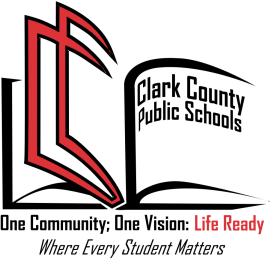Closer Look: New program in schools aims to reduce drug use
Published 11:48 am Monday, October 21, 2019
Students are too good for drugs, violence, alcohol, tobacco and negativity.
Clark County students in the fourth through eighth grade are going to explore the reasons why they’re “too good” and look deeper into core values such as respect, empathy and more in a new program that Clark County Public Schools rolled out this year.
“We want students to make strong and informed decisions about what they are putting into their bodies, and what they should not be putting into their bodies, and having a strong knowledge of the inherent dangers of chemicals and substances that are out there,” Greg Hollon, director of pupil personnel and student support services, said.
Too Good for Drugs
Too Good for Drugs is designed to promote life skills, character values, resistance skills to negative peer influence, and resistance to the use of illegal drugs, alcohol and tobacco, Hollon said.
“It’s a program that’s designed to teach students of all ages, multiple ages of the dangers of drugs, making those decisions and choices,” Hollon said. “It deals specifically with alcohol and drugs but also making wise choices and decisions in a lot of facets of life.”
The program, which targets elementary and middle school students, is based on classroom discussions and structured activities that center on interactive learning and skill-building exercises.
Students engage in role-playing and cooperative learning games and are encouraged to apply the skills to different contexts.
The program consists of 10 lessons at each grade level lasting 30–45 minutes per lesson. All lessons are scripted and intended to be taught by trained teachers or program instructors. Lessons include information about the frequency of drug use among American youth and the harmful effects of drug use. The lessons also cover mental health, Hollon said.
“The mental health side is very key into it and talking about what it can do to further exacerbate your mental health down the road or to create some issues with that,” Hollon said. “It deals with depression. It deals with people turning to these types of things to self medicate, as opposed to seeking help and so instead of people just turning into these without knowing that there’s avenues out there, this program is designed to show students, there are other ways to cope with issues if you have those as opposed to turning to substances.
“Substances only make it worse as opposed to making it better. And that’s one of the things that the program talks about.”
Instructional strategies in the program cover goal setting and decision making skills, prosocial skills, resistance to negative peer influence skills and interpersonal skills.
Core values such as respect for self and others, empathic responding and responsibility are also integrated into the lessons, according to Too Good’s website.
“One of the big things that it talks about is the peer pressure and not going along with just what society is doing,” Hollon said. “… When you look at the vaping issues that we’ve recently heard about in the news, and you see that so many teens… they talked about how that their friends were doing it, so they chose to get into it. And so many times we see people just going along with the crowd.
“One of the things that this program talks about and illustrates is you need to be your own person. You need to be informed about the things that you’re putting in your body and what’s it going to do, what are the long term ramifications and the short term ramifications. And that’s what I think is appealing to us, to get that message out to students: Be your own person, and just don’t follow the crowd and be informed.”
Cooperative learning activities, role-play and skill-building methods reinforce positive behaviors and skills and encourage students to apply these behaviors and skills in other contexts.
“It’s something that we were excited to bring in to Clark County,” Hollon said.
Rolling it out
Hollon said the effort to bring Too Good for Drugs to CCPS was the work of partnerships with the Clark County Health Department and the Winchester Police Department. Those entities plus Madison County schools, which also rolled out the program, helped fund the program.
“There’s a neighboring district who had purchased it and trained the year before, and they had shown some promising results with it with some good feedback from students and so we got together in a meeting and just started the initial discussions and very quickly, it was evident once we took a look at the curriculum that goes along with it, that it was something that we wanted to adopt and bring in,” Hollon said. “So with the partnership all of these different entities were able to purchase their curriculum, get the trainers.”
Baker Intermediate School was initially going to have one grade undergo the pilot program.
But the program’s promise prompted Baker to want to roll out the program in the fifth and sixth grades.
“And then it moved into Campbell,” Hollon said. “They wanted to adopt it for at least one grade level, and then they adopted it for both grade levels. And when we did that I wanted to give the elementary the opportunity to have it at the fourth grade level so that we would have that transition at fourth through eighth… so instead of just having it in one grade level, like we initially had talked about, we now have a bigger pilot.”
Each school will roll out the program either in an advisory class, a health or physical education class or an exploratory class. Hollon said it’s ultimately up to each school how they want to implement the program within the school.
“When the curriculum came in, we turned it over to the administrators,” he said.
History of the program
Educators first developed Too Good for Drugs in Hillsborough County (Tampa), Florida, in 1978. Educators revised the middle school program in 1995.
Too Good for Drugs and its companion programs (Too Good for Violence and Too Good for Drugs and Violence) have been implemented in more than 2,500 districts in more than 48 states in rural-urban, and suburban communities with African-American, Asian, Hispanic and Caucasian student populations and across diverse socioeconomic groups, according to its website.
Research
Two studies of Too Good for Drugs met the What Works Clearinghouse (WWC) evidence standards, according to its website.
These studies, which included nearly 2,500 students in third, fourth and sixth grades, attending 12 elementary and middle schools in Florida, examined results on students’ behavior and knowledge, attitude and values.
Both studies (Bacon, 2000; Bacon, 2003) were randomized controlled trials that met WWC evidence standards. Both studies focused on Too Good for Drugs implemented in classrooms rather than as a schoolwide intervention, according to the study.
The Bacon (2000) study investigated the program effects on middle school students and included more than 1,300 sixth-grade students attending six middle schools in one large school district in Florida.
This study compared outcomes for students participating in a Too Good for Drugs curriculum with outcomes for students in classes that did not use a character education curriculum.
The Bacon (2003) study investigated the program effects on elementary school students and included more than 1,100 third and fourth-grade students attending six elementary schools in one school district in Florida. This study compared outcomes for students participating in a Too Good for Drugs curriculum with outcomes for students in classes that did not use a character education curriculum, according to the study.
The WWC found Too Good for Drugs to have potentially positive effects on students’ behavior and no discernible effects on students’ knowledge, attitudes and values, according to the studies’ results.
“That is a huge goal for any place who’s trying to implement a program is … for the people who are learning it to be able to effectively communicate what they’re learning,” Hollon said. “And that’s what the data had shown us when we were researching it. And so that’s something that was appealing to us is that it reaches the audience.”
Clark County isn’t immune
CCPS is not immune to any of the issues — vaping, drugs, alcohol and more.
“We know that it’s out there,” Hollon said. “And I think one of the biggest problems that can be said at any school district or any group of parents or anything is to think that it can’t happen to our district or my child. And it can happen at a very early age. It’s out there and people need to know this.
“And to bury your head in the sand and not acknowledge that it’s out there doesn’t do it… it further exacerbates the problem, as opposed to how can we come up with a solution to try to tackle this. It’s an ongoing issue that we know is there in the schools, and our job is to try to put programs like [Too Good for Drugs] in place and offer ways to combat this through an educational side of it, so that students can make the best informed decisions.”
Hollon said the problem with the drug epidemic, violence and divisiveness is rampant in society, not just Clark County.
“The problem doesn’t seem to be getting any better worldwide and across America and across the state,” Hollon said. “… I think it’s our duty to try to get this message out and inform students at as early an age as we possibly can, and continue that message to really help let them know that there are avenues of support. There’s people they can come and talk to, and that they don’t have to follow their peers if they’re going down a path that they know is wrong.”
Hollon said overall, Clark County is excited to be a part of the Too Good for Drugs program.
“I don’t think you can have too many programs that teach students about the inherent dangers of substances, and anything we can do to try to curb this in our community is something I think is incumbent for us as a school district to try and get them to be a part of,” Hollon said.







